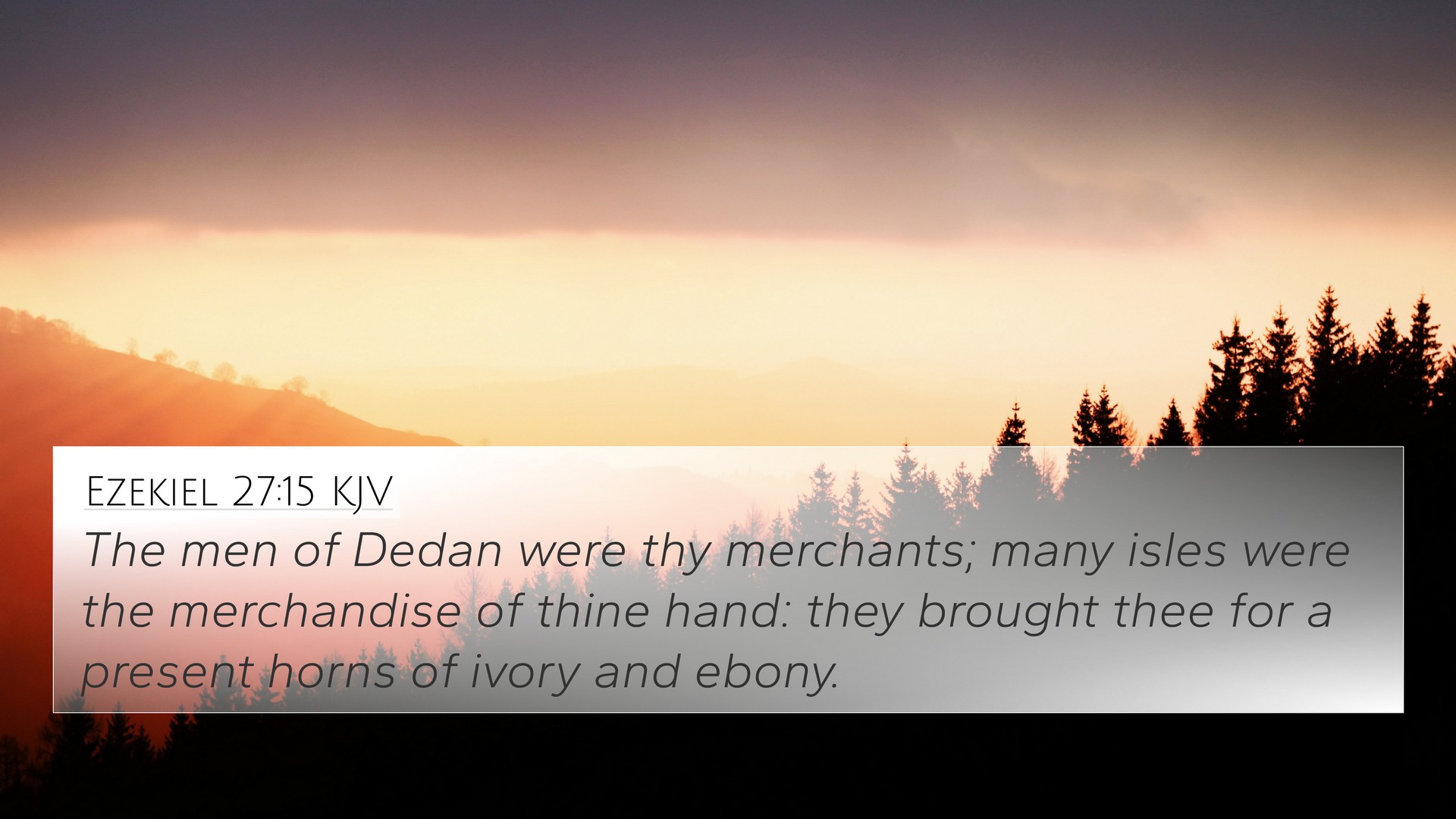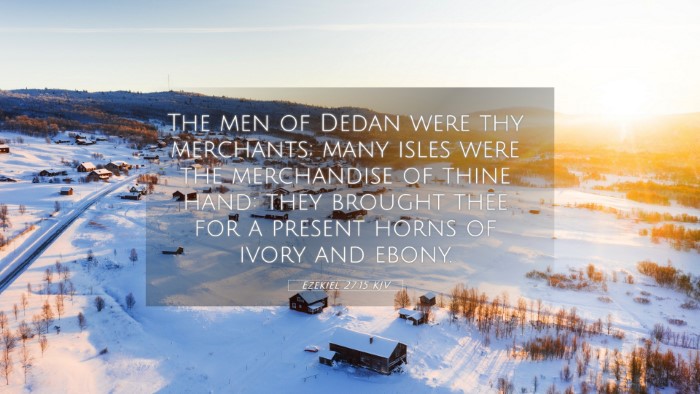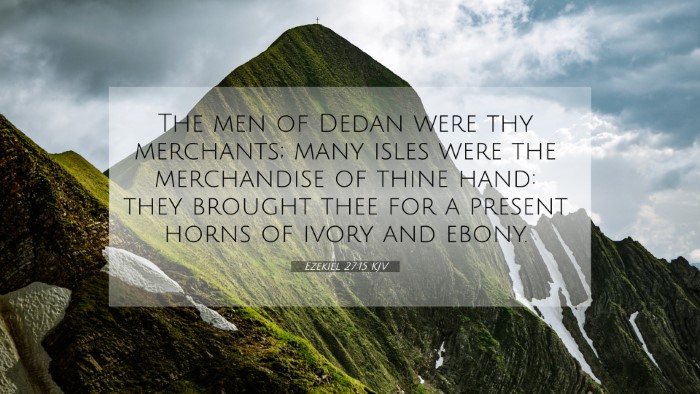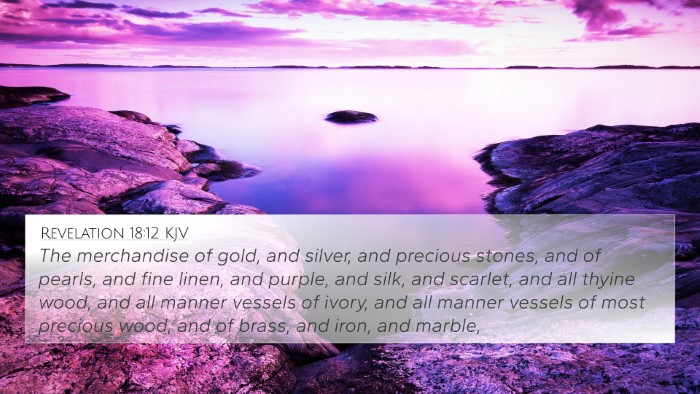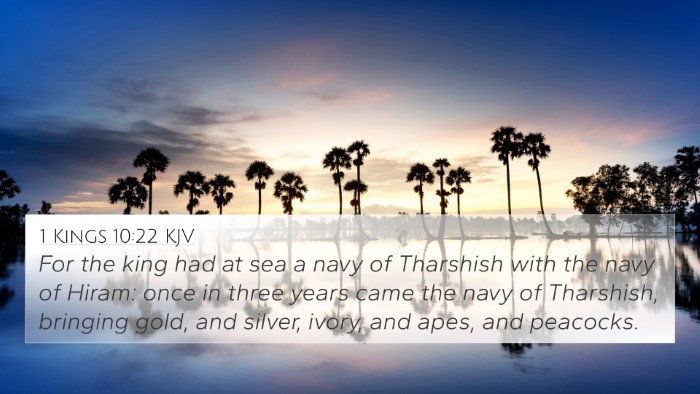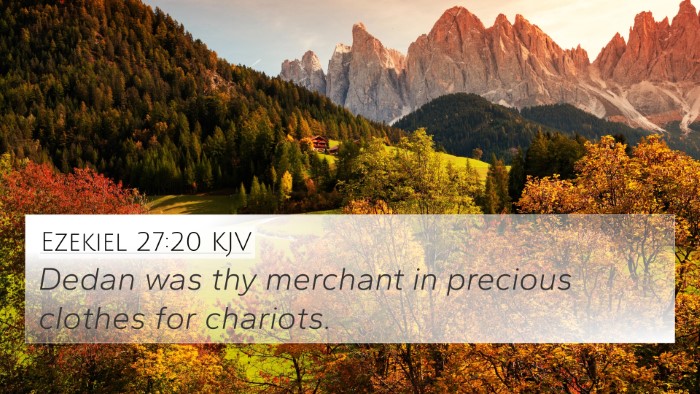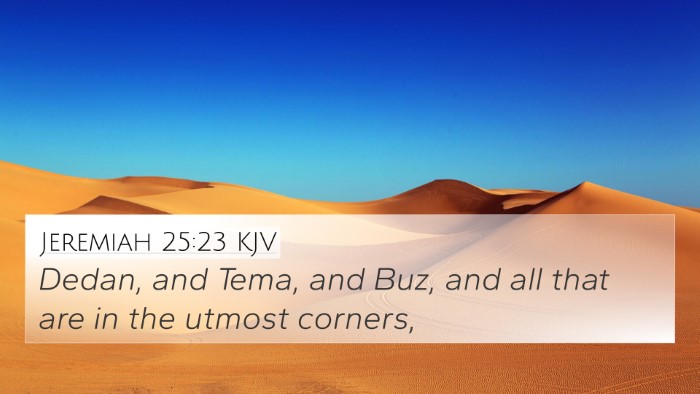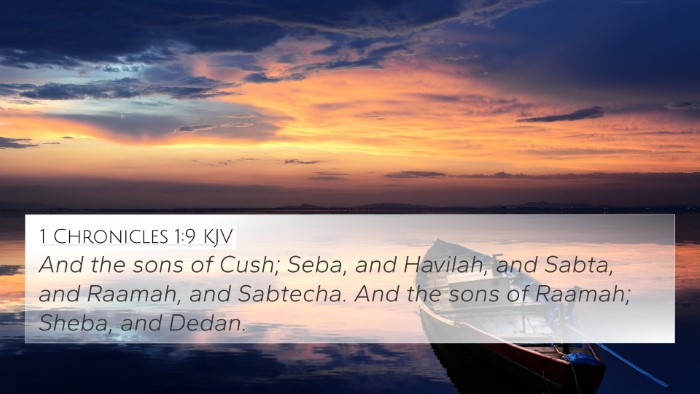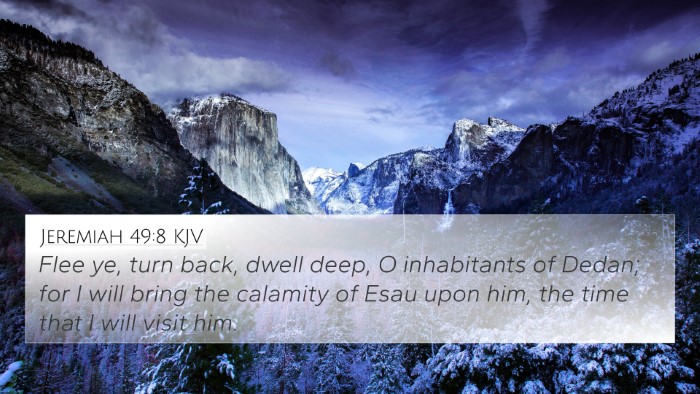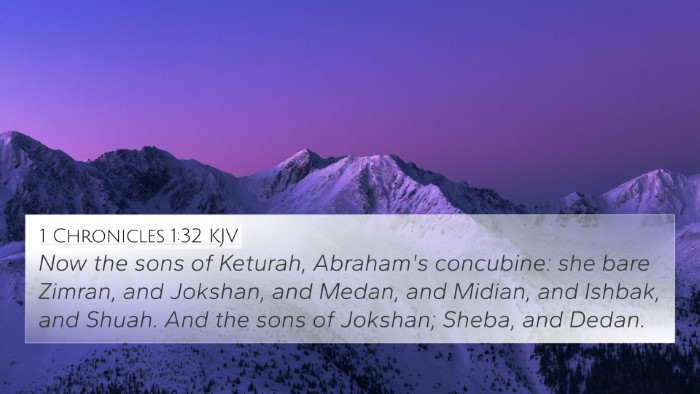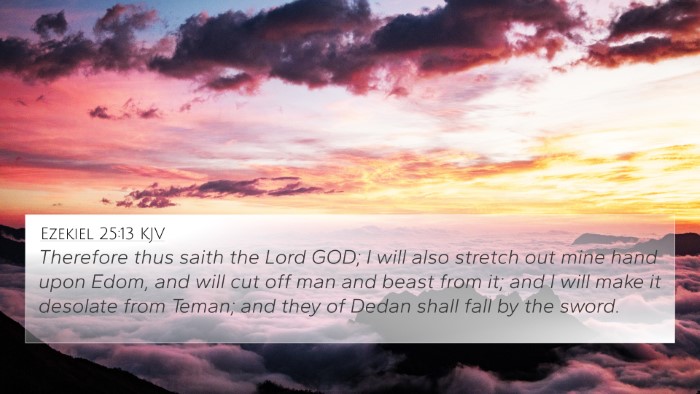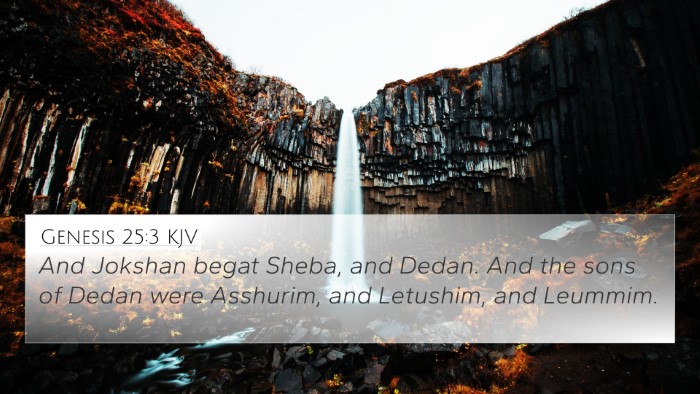Ezekiel 27:15 - Summary and Interpretation
Ezekiel 27:15 states: "The men of Dedan were thy merchants: many isles were the merchandise of thine hand: they brought thee for a present horns of ivory and ebony." This verse is part of a larger passage in which God, through the prophet Ezekiel, laments the destruction of Tyre, a major commercial hub of the ancient world.
Context and Historical Background
The prophecy in Ezekiel demonstrates the significance of Tyre in ancient trade and commerce. Various nations, including those from distant lands, engaged in profitable trade with Tyre, showcasing its prominence. The mention of Dedan, an ancient area located in the Arabian Peninsula, highlights the reach of Tyrian trade networks.
Meaning and Exegesis
The verse illustrates several essential themes and meanings:
- Commercial Influence: Tyre’s economic relationships with regions as far away as Dedan reveal its extensive influence and stature as a commercial powerhouse.
- Symbolism of Trade Goods: The "horns of ivory and ebony" symbolize luxury and wealth, indicating the high value of goods exchanged and the relative prosperity of Tyre's merchants.
- Judgment and Loss: The verse serves as a prelude to the judgment God pronounces against Tyre for its pride and idolatry, highlighting the eventual loss of such commercial connections.
Cross-References and Thematic Connections
This verse can be cross-referenced with several other scriptures that contribute to a deeper understanding of its themes. Here are some pertinent connections:
- Isaiah 23:1-18: This passage describes the imminent fall of Tyre, similar to the prophecies found in Ezekiel.
- Revelation 18:11-19: This chapter discusses the lamentation over fallen Babylon, showcasing parallels to Tyre's judgment.
- Ezekiel 26:13-16: A preceding section describing the destruction of Tyre and its implications for coastal cities echoes the sentiments found in Ezekiel 27.
- Jeremiah 25:22: This verse addresses the kingdoms of the coastlands, including Tyre, highlighting the interconnectedness of these regions.
- Proverbs 31:22: The luxury of fine materials, akin to those traded by Tyre, is reflected in this Proverbs passage about the virtuous woman.
- Ezekiel 28:12-19: A description of the king of Tyre, drawing parallels between the city's wealth and the fall due to hubris.
- Romans 11:12: A mention of how the loss of one may lead to the richness of another, relatable to the fate of Tyre and its merchants.
- Luke 10:13: Jesus mentions Tyre as a place that would face woe if the miracles performed elsewhere had been done there.
- Amos 1:9: A proclamation against Tyre for trading prisoners, linking ethical concerns with trade practices in scripture.
- 1 Kings 10:22: Reflects upon the abundance of resources during Solomon's reign, relating to trade similarities with Tyre.
Applications for Modern Readers
Understanding Ezekiel 27:15 and its surrounding context calls readers to reflect on various themes:
- Ethics in Commerce: The trade practices of Tyre prompt questions regarding the moral aspects of modern commerce.
- The Impact of Pride: The downfall of Tyre due to pride serves as a timely reminder about humility.
- Interconnectedness of Nations: The global nature of trade and relationships among nations can be seen as both a blessing and a potential path to downfall.
Tools for Bible Cross-Referencing
For those looking to delve deeper, here are some tips for using tools and methods for Bible cross-referencing:
- Utilize a Bible concordance to locate similar themes across various books of the Bible.
- Employ a Bible cross-reference guide to discover thematic connections that link verses.
- Engage in cross-referencing Bible study methods to deepen understanding through comparative analyses.
- Investigate Bible reference resources for structured approaches to relationship mapping between scriptures.
Conclusion
The examination of Ezekiel 27:15 provides insight into the dynamics of trade, judgment, and morality portrayed in scripture. It invites readers to explore the interconnectedness of biblical texts and the spiritual lessons that arise from the historical accounts of Tyre and its merchants.
